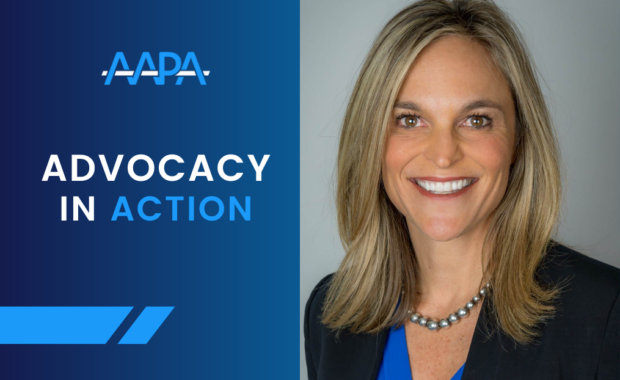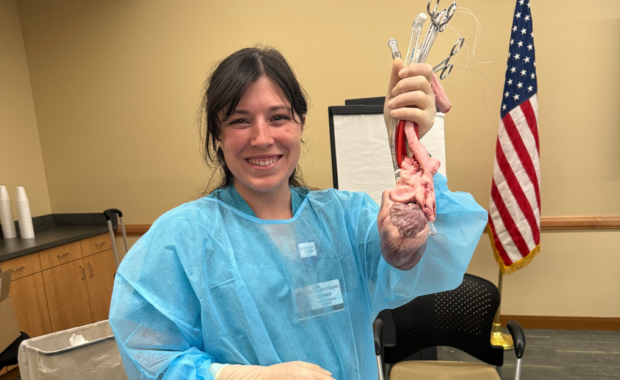4 Practice Environment Factors to Consider: Where Will You Thrive?
Pros and Cons for All Practice Environments
February 27, 2019
By Jennifer Hohman
So many factors go into making a PA position the right one for you. When deciding between offers, it’s worth considering the different practice environments. Whether you’re considering working at a hospital, for a hospital-employer at a practice, or any type of private practice, there are pros and cons to any option. According to AAPA’s 2018 Salary Report, physician practices are the largest employer of PAs (46.1%), but more than one-third of PAs (34.9%) are hospital-employed.
There are no “correct” answers to which factors you prefer—just ones that accurately reflect the sort of setting where your unique talents and personality will shine.
Continuity or Change?
Some PAs absolutely thrive on change, a fast pace, and the excitement of each day offering a completely new set of patients and clinical issues. If this sounds appealing, a dynamic hospital position may be good for you. Large institutions generally offer diverse and politically complex circumstances that you may find stimulating. Does continuity appeal to you more? Would you prefer to build relationships with your patients over time? Then a private practice setting might be more to your liking. In my conversations with PAs, I’ve noticed that the preference for one or the other is a key job satisfaction factor.
[Effective Career Navigation Starts with Self-Assessment.]
Professional Relationships: Smaller or Larger Networks?
How would you most like to work with clinical colleagues: as part of a larger or smaller team? Do you want to work one-on-one with a collaborating physician, your team being the locus/focus of patient care? Or with a group of physicians and other providers? Make sure you’re considering the size and scale of the professional network you’d like to practice in.
The larger the institution, the more you’ll be dealing with dynamics of different professional groups within it—but that can also lead to important support and camaraderie. A PA paired with a functional, competent, and dedicated physician collaborator (or a group of them) is in a very different situation, professionally speaking, than one paired with less able or collegial ones, and for this reason I always recommend that clients consider the issue of personality and interpersonal chemistry carefully when they interview for new jobs—especially in private practice settings.
Schedules and Lifestyle Considerations
Shift work is one of the most distinctive aspects of hospital employment and I’ve had clients over the years who either loved or hated working in this manner. Some relished the combination of concentrated hours and then several days off, while other have described feeling exhausted and disjointed from shift work. Hospitals can generally offer a larger menu of scheduling options: flex time, shifts timed to day or night. PAs working for private practices generally have more regular schedules, which works well for PAs who need that stability for juggling family or other personal commitments. However, some PAs report frustration with the inflexibility of those hours and sometimes have to stay later for paperwork. They sometimes report employers demanding more hours than they’ve negotiated in an employment contract. If that becomes a regular issue, you’ll need to politely request that your employer honor the terms of your contract.
Differing Power Structures to Navigate
Every workplace establishes its own protocols and power structure. At a private practice, you’ll generally be in closer contact with the decision makers. PAs working for smaller employers often find the decisions affecting their employment are made on a more ad hoc basis. Working in a smaller practice, you also tend to develop closer working relationships with your colleagues.
Differences in HR processes are worth considering: how would a hospital employer versus a and private practice gauge and assess your performance? What is the process for addressing patient complaints or performance evaluations? Likewise, processes for addressing patient complaints and workplace conflicts in hospitals are more likely to be handled through an established HR process which provides the added security of a more formal review, but also may be lengthy and more rigid. Private practices may be more flexible, but may not have formal processes in place when you need them.
Hospitals as large-scale institutions offer more structure, but potentially less flexibility for individual employment terms and conditions. This matters when it comes to employment contracts: you will likely have less room to negotiate but frequently receive a richer benefits package. That said, there can be strength in numbers, and working alongside many other PAs can lead to greater visibility when it comes to creating favorable employment terms. In some institutions, the large scale of the hospital setting offers great opportunities to advance and become a leader, active in committees that shape policy regarding administration, research and education.
PAs should reflect on their own styles and needs when considering a practice environment. And all PAs should remember that each practice environment is different: you may find a small private practice that has a well-defined and formal HR process, for instance, or a hospital that doesn’t allow for much flexibility when it comes to hours. No matter where you end up working, there will be pros and cons. If you’ve defined the most important parts of your practice environment before accepting your job, you’ll be sure to make the most of any situation.
Jennifer Anne Hohman is the founder of PA Career Coach, a service dedicated to helping PAs create healthy careers. Email her at [email protected].
More Resources
PA JobSource – the largest job board devoted to PA opportunities
Login to view member-only content.
Career Experts Offer PAs Negotiation Advice
3 Steps to Making a Non-Clinical Career Move
Getting the Most of Your Benefits Package
Thank you for reading AAPA’s News Central
You have 2 articles left this month. Create a free account to read more stories, or become a member for more access to exclusive benefits! Already have an account? Log in.




